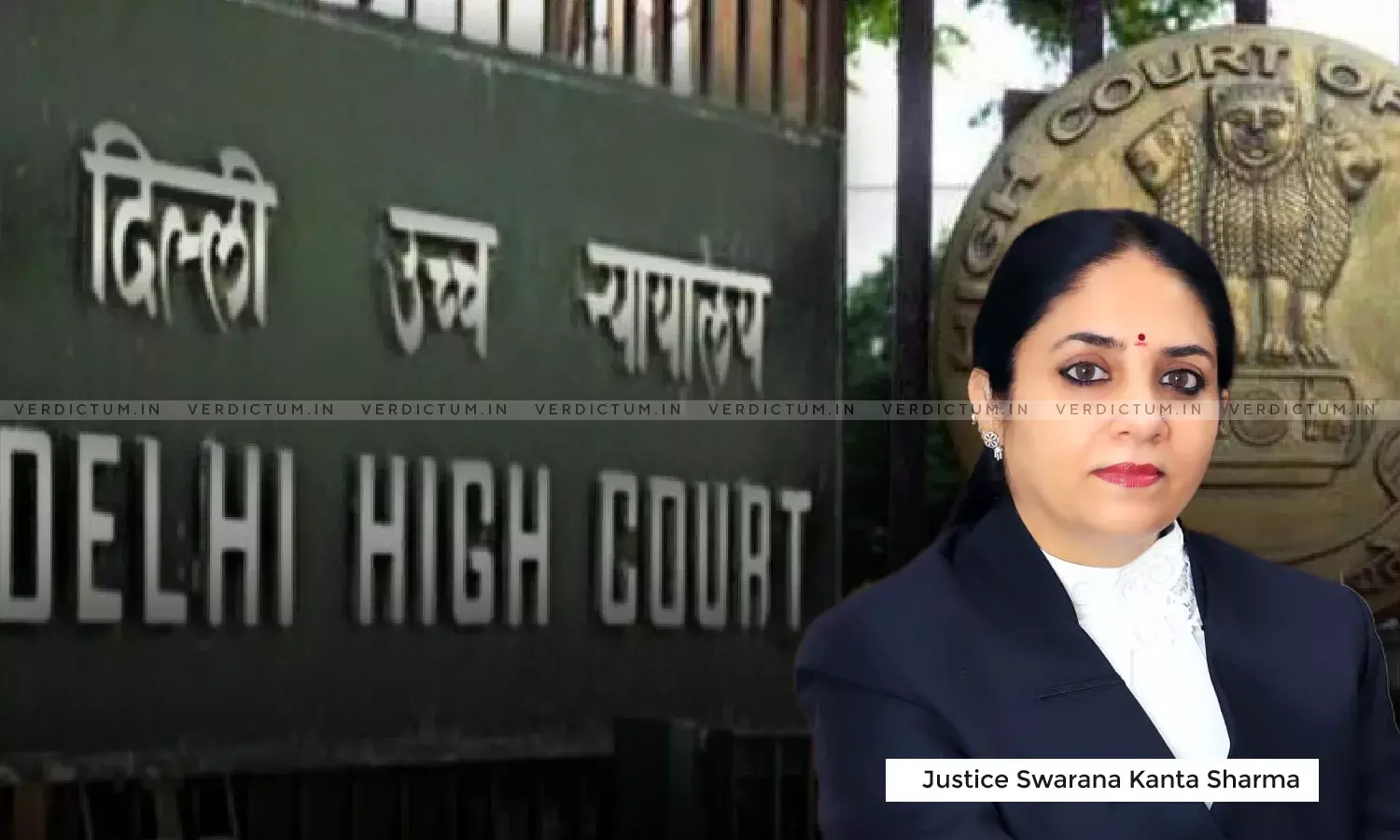"Impact Of Terrorist Activities On Society Is Far Reaching": Delhi HC Rejects ISIS Member's Plea For Concurrent Sentences
The Delhi High Court recently dismissed a petition filed by Mohsin Ibrahim Sayyed, a man convicted for being a member of the terror outfit ISIS, who sought to have his sentences in two separate cases run concurrently instead of consecutively.
The Bench of Justice Swarana Kanta Sharma noted that Sayyed had been convicted under the Unlawful Activities Prevention Act (UAPA) and had pleaded guilty to terrorism charges. The High Court emphasized that the Supreme Court has ruled against the concurrent running of sentences in cases under the Narcotic Drugs and Psychotropic Substances Act (NDPS Act) due to their societal impact, and that terror cases warrant even stricter measures.
"In this case, the petitioner had himself pleaded guilty to charges framed under UAPA for his acts of planning terrorist attacks in Haridwar during Kumbh Mela and plotting to kill a leader of Hindu Mahasabha, with the primary aim of disrupting communal harmony in the country," the Court said. It also noted that leniency had already been extended by the trial courts at the sentencing stage, and no additional leniency was warranted.
The Court remarked, "There is no gainsaying that terrorism not only threatens the national security of the country but also the very fabric of society by targeting innocent civilians and institutions indiscriminately, with an aim to instill fear among the common and innocent citizens of a country. The impact of such terrorist activities on society is profound and far-reaching, as these crimes have the capacity to sow fear and insecurity among communities, as well as disrupt the social harmony."
"They also result in loss of innocent lives, destruction of property, and destabilization of regions. These impacts are often long-lasting. Thus, the gravity of such crimes lies in their potential to cause widespread harm, both physically and psychologically, and their challenge to fundamental values of peace, tolerance, and coexistence in a nation," it added.
Sayyed was convicted by trial courts in Mumbai and Delhi for various offences under the UAPA and the Indian Penal Code (IPC). The Mumbai Court sentenced him to eight years in prison for promoting ISIS activities, recruiting youths for fidayeen missions, and planning the assassination of Hindu Mahasabha leader Kamlesh Tiwari. The Delhi trial court sentenced him to seven years for conspiring to attack Haridwar during the Ardh Kumbh Mela and raising funds for the attack.
After reviewing the case, the Single-Judge Bench pointed out that the trial courts in both Mumbai and Delhi had not imposed the maximum life sentence for Sayyed's convictions. If the sentences were to run concurrently, Sayyed would serve only eight years. Considering the severity of his offences, the Court found no grounds to exercise discretion under Section 427(1) of the Criminal Procedure Code (CrPC).
Consequently, the Court ruled that Sayyed's sentence in the Delhi case would commence only after the completion of his sentence in the Mumbai case, resulting in a total imprisonment of 15 years.
"Therefore, this Court finds no reasons to exercise discretion under Section 427(1) of Cr.P.C. and thus, the sentence of imprisonment awarded to the petitioner in case arising out of RC09/2016/NIA/DLI by the learned Trial Court (Delhi) shall commence upon expiration of the sentence of imprisonment awarded to the petitioner in case arising out of RC-02/2016/NIA/MUM by the learned Trial Court (Greater Bombay)," the Bench ordered. Accordingly, the Court dismissed the present petition along with pending application.
Cause Title: Mohsin Ibrahim Sayyed v. National Investigation Agency [Neutral Citation: 2024: DHC: 4734]
Appearance:-
Petitioner: Advocate Siddharth Sunil
Respondent: Special Public Prosecutor Akshai Malik, Advocates Khawar Saleem, Arun Kumar
Click here to read/download the Judgment




